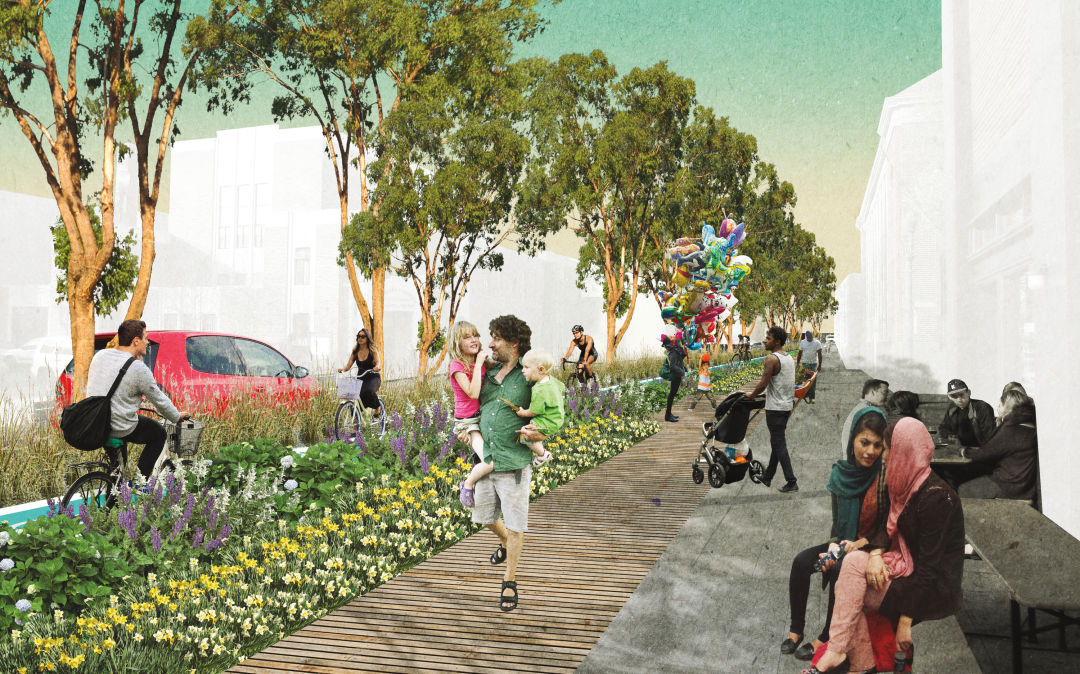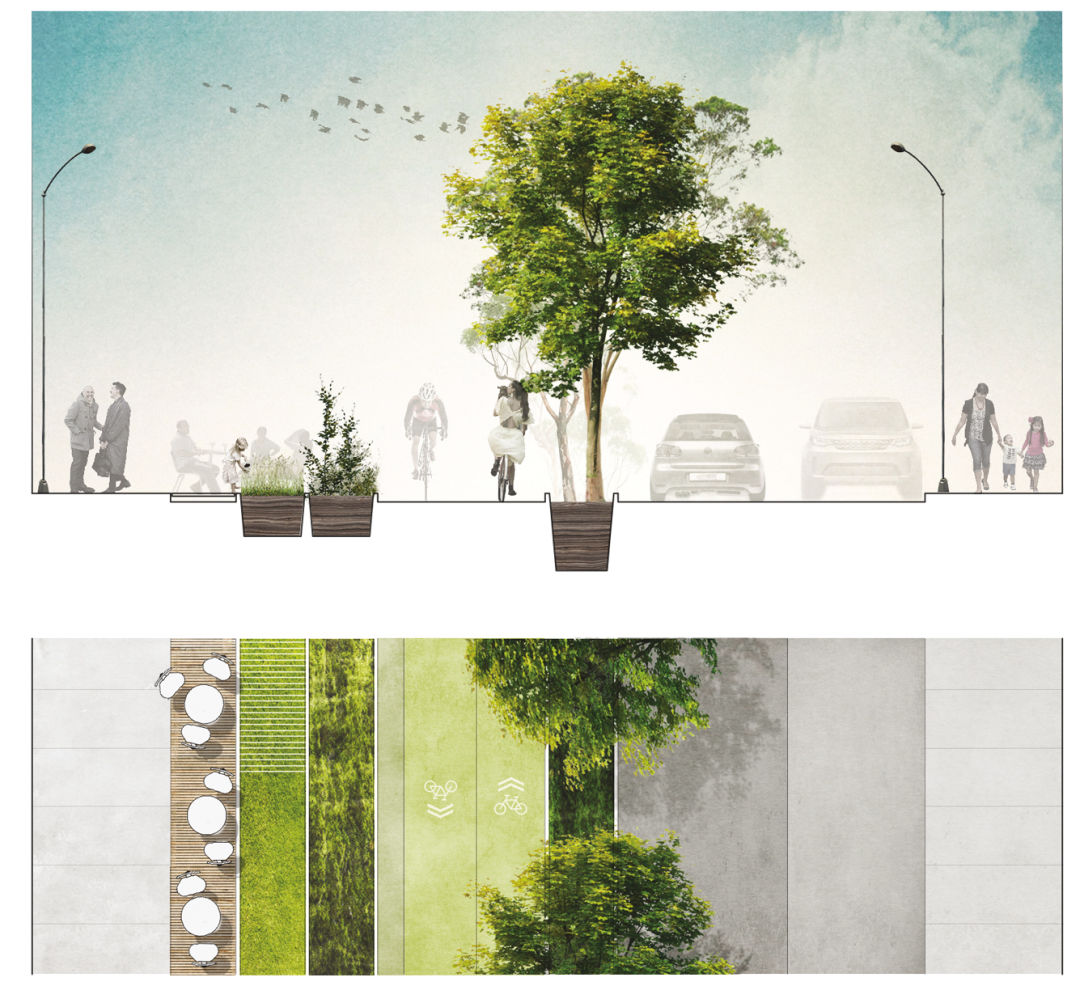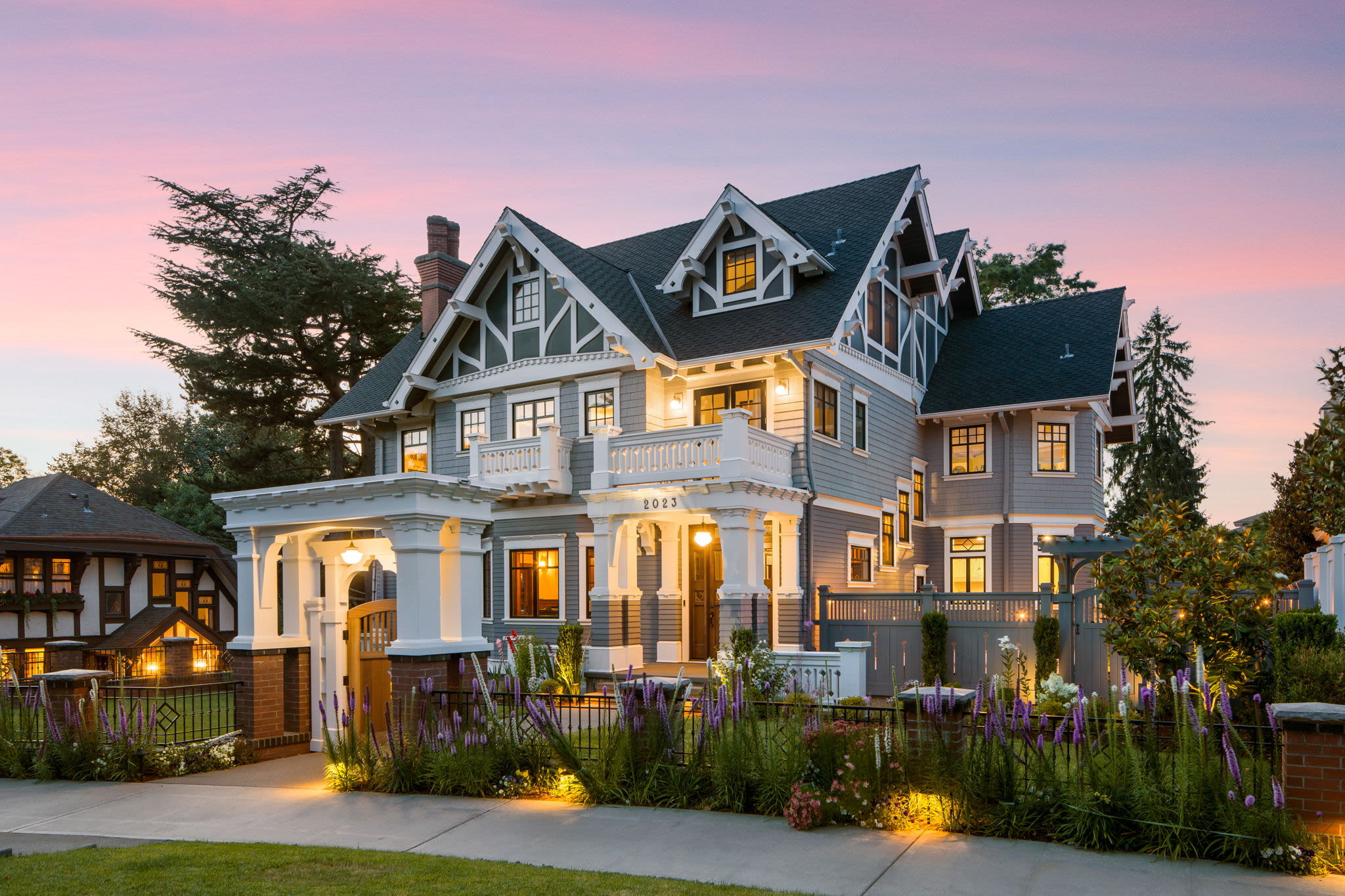Could Portland's Proposed Green Loop Reshape the City?

Renderings of Untitled Studio’s proposed “Green Loop” design
Image: Courtesy Untitled Studio
Imagine a verdant “linear park,” wrapping Portland’s center in six miles of continuous walk- and bikeability. This would be the Green Loop, a proposed addition to the cityscape one official document promises would be “like Sunday Parkways every day.”
In reality, the Green Loop exists only as part of Portland’s 2035 Central City Plan. (Yep, 2035. City council may take one small step toward its creation with a 2017 budget vote.) In its fifth year, Design Week Portland will bring the Loop to life—or, at least, one vision of what the Loop could be.
Last year, the citywide festival staged a Green Loop design competition. (The University of Oregon’s John Yeon Center, led by former Portland Monthly editor in chief Randy Gragg, sponsored the contest.) The unlikely winners, in a field of established firms: an ad hoc group of young designers calling themselves Untitled Studio. The idea: a loop that transforms along its route to reflect the neighborhoods it passes through.
“How do you bite off something this complicated and politically loaded?” asks William Smith, part of Untitled. “We decided to create a framework in which very different areas could decide what represents them. Maybe it’s public, outdoor sculpture, or maybe it’s a corridor of really active nightlife.”

Renderings of Untitled Studio’s proposed “Green Loop” design
Image: Courtesy Untitled Studio
This flexible idea will shape Design Week’s 2017 headquarters at inner Southeast’s the Redd, which will temporarily become a theoretical street from the future Green Loop. Models, drawings, and discussions will showcase Untitled’s concept. A role in shaping the discussions around a major city project—even one decades from realization—represents a leap in ambition for a festival mostly made up of open houses, talks, workshops, parties, and other events scattered across town.
“Early in our evolution, we didn’t really have a long game in mind,” says Tsilli Pines, DWP’s director. “But it’s become clear that the city itself is at an inflection point. There’s value in bringing the design community together, but what comes after that? What are the tangible outcomes?”
There’s no guarantee that the real, future Green Loop will look anything like what’s created at the Redd. For Smith and his fellow designers, literalism isn’t the point. “Portland has a lot of communities that need to be brought into the conversation about what we want the city to be. Design Week is helping push that conversation. We also want this thing to be a big party.”




